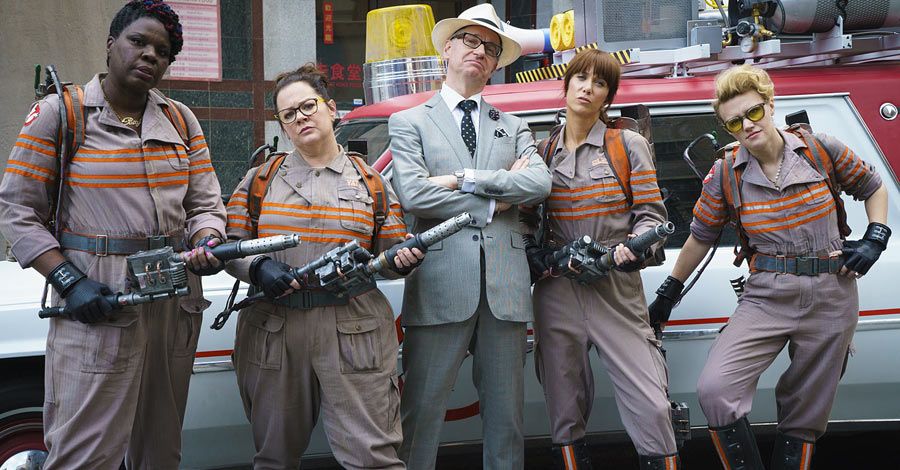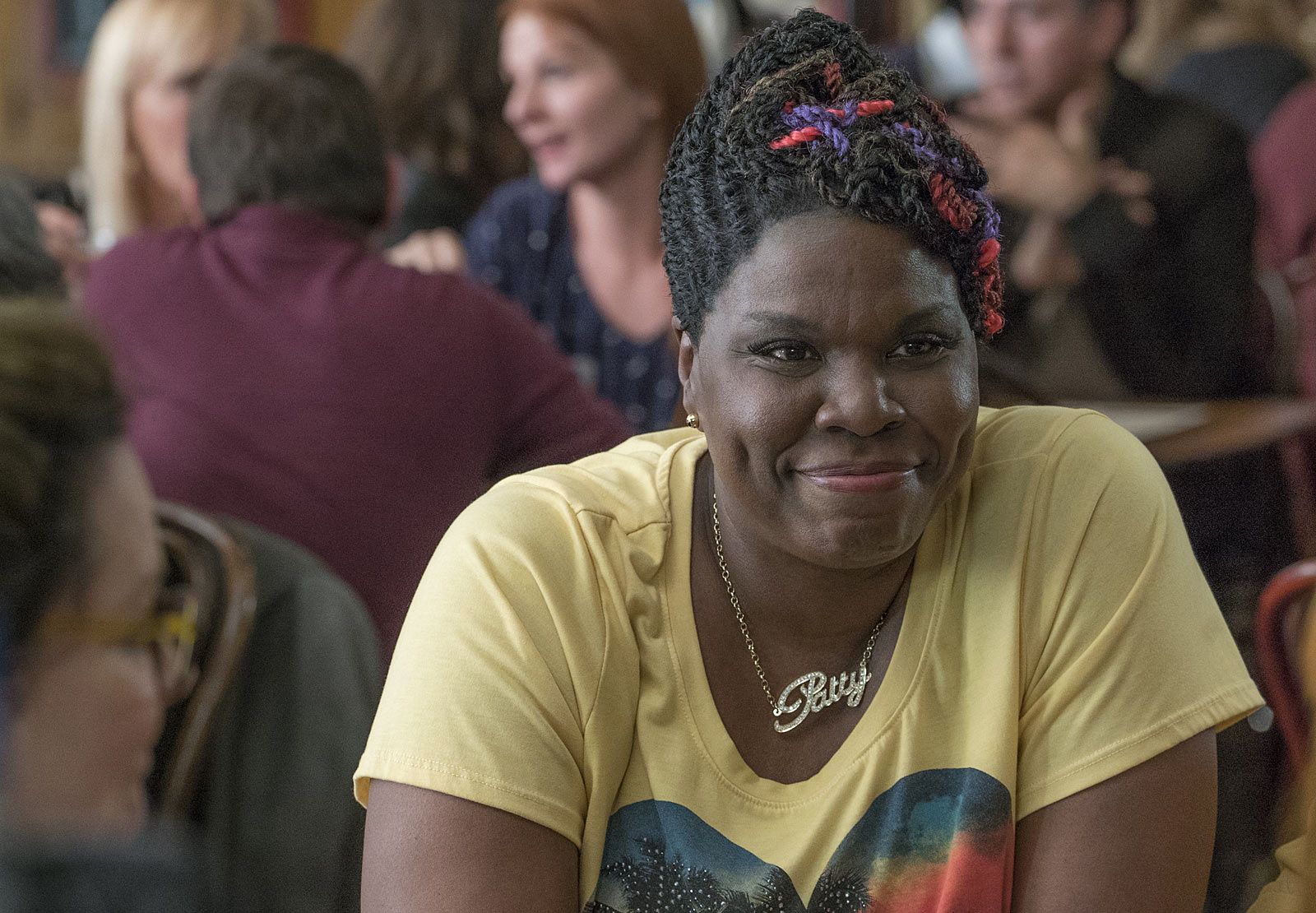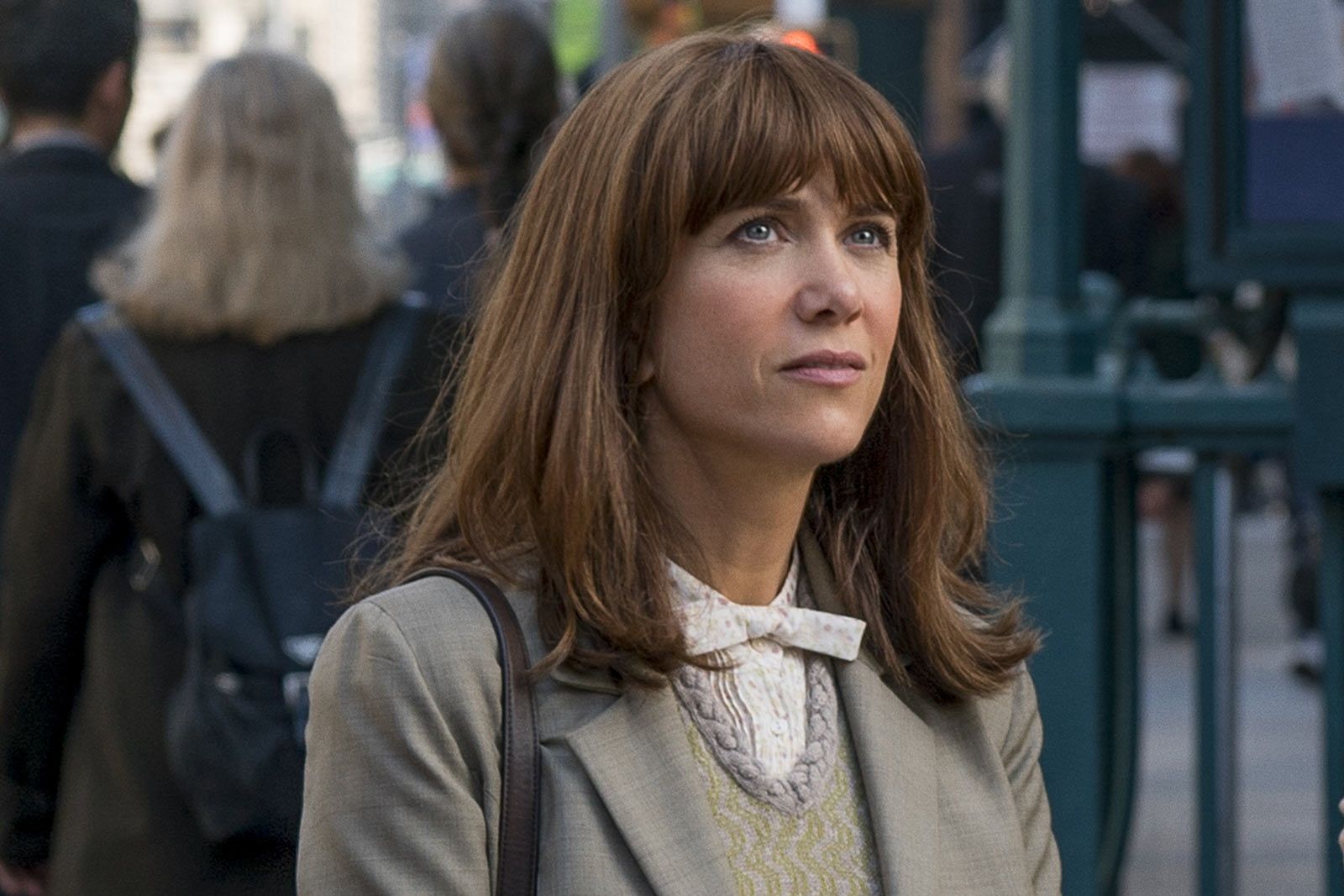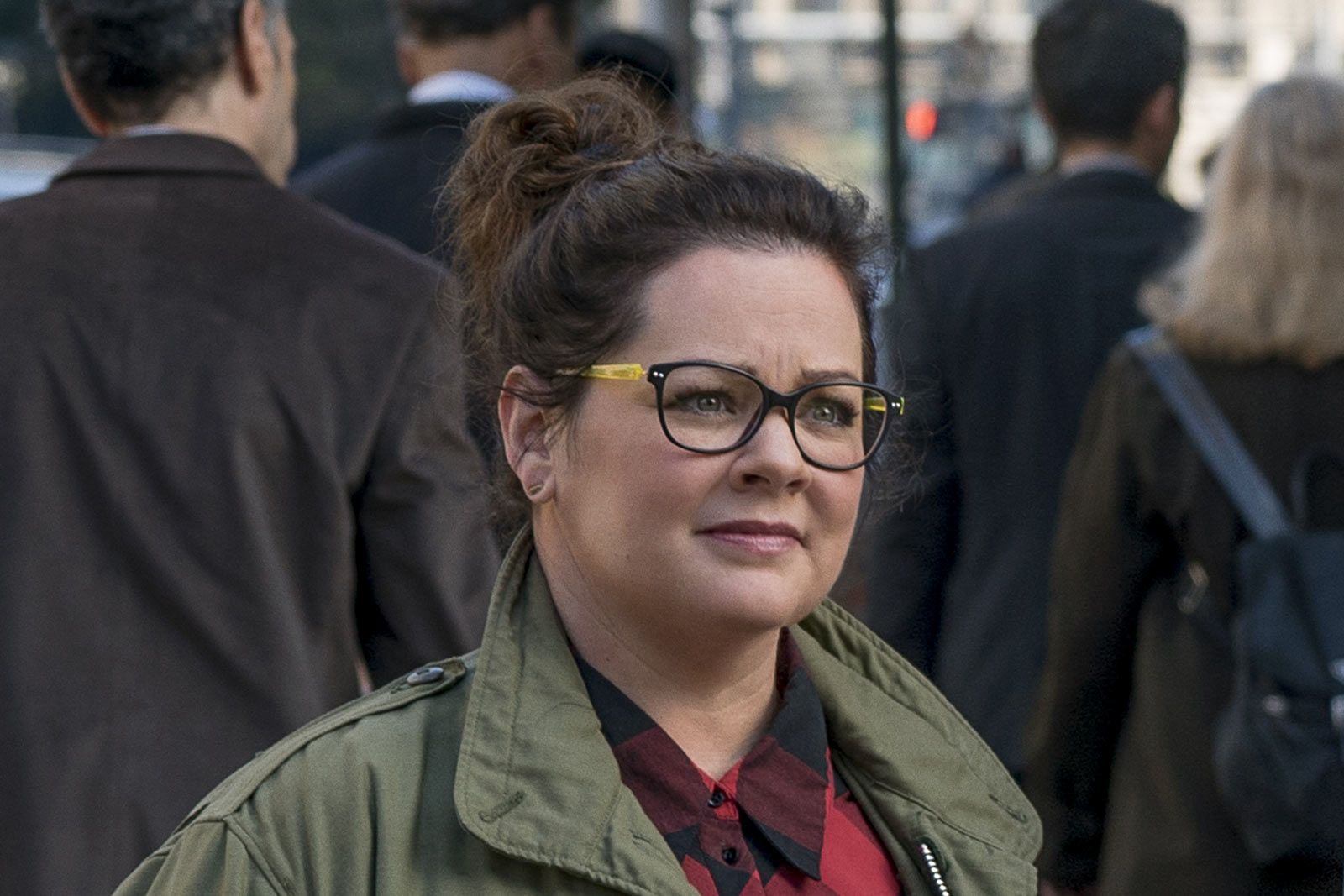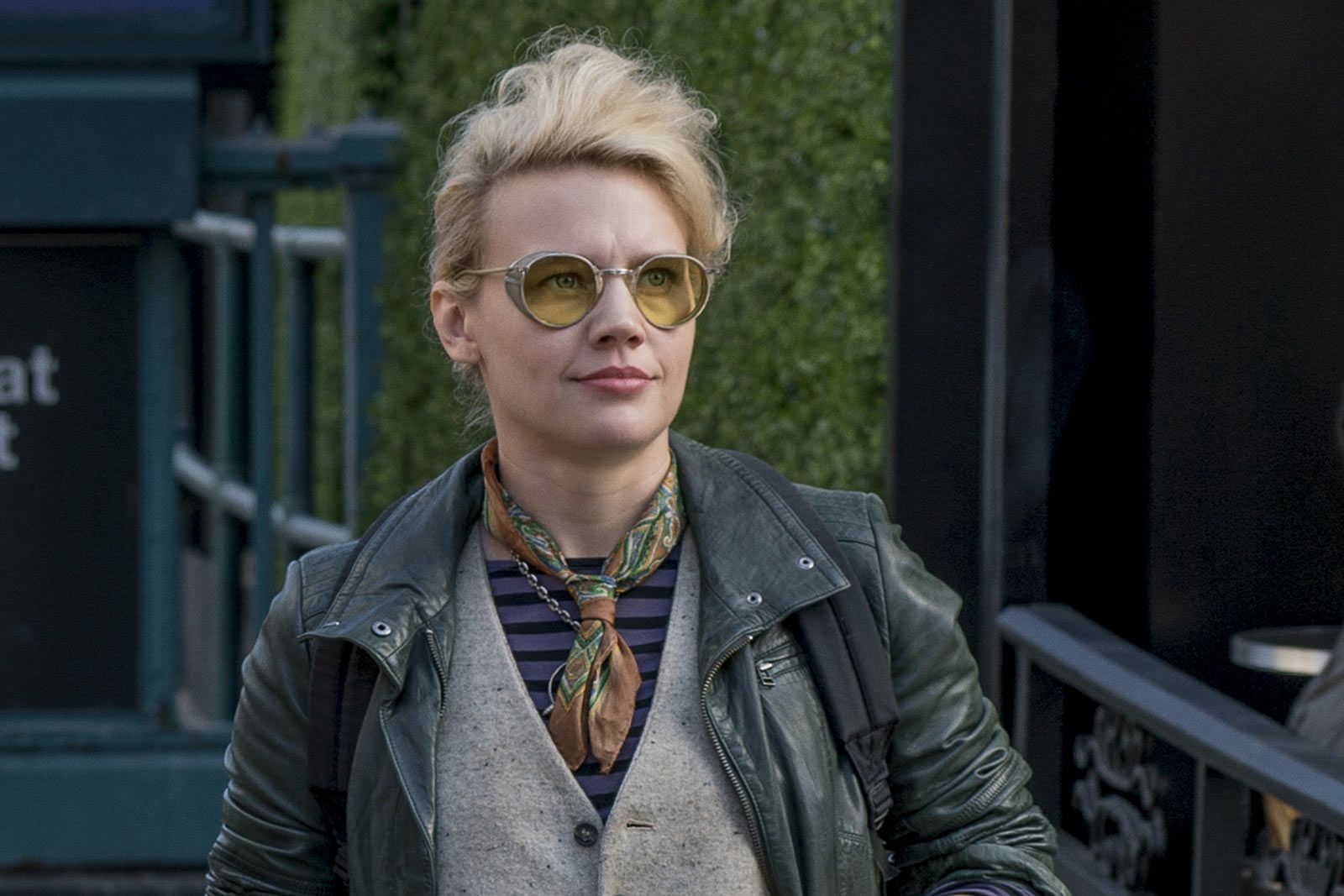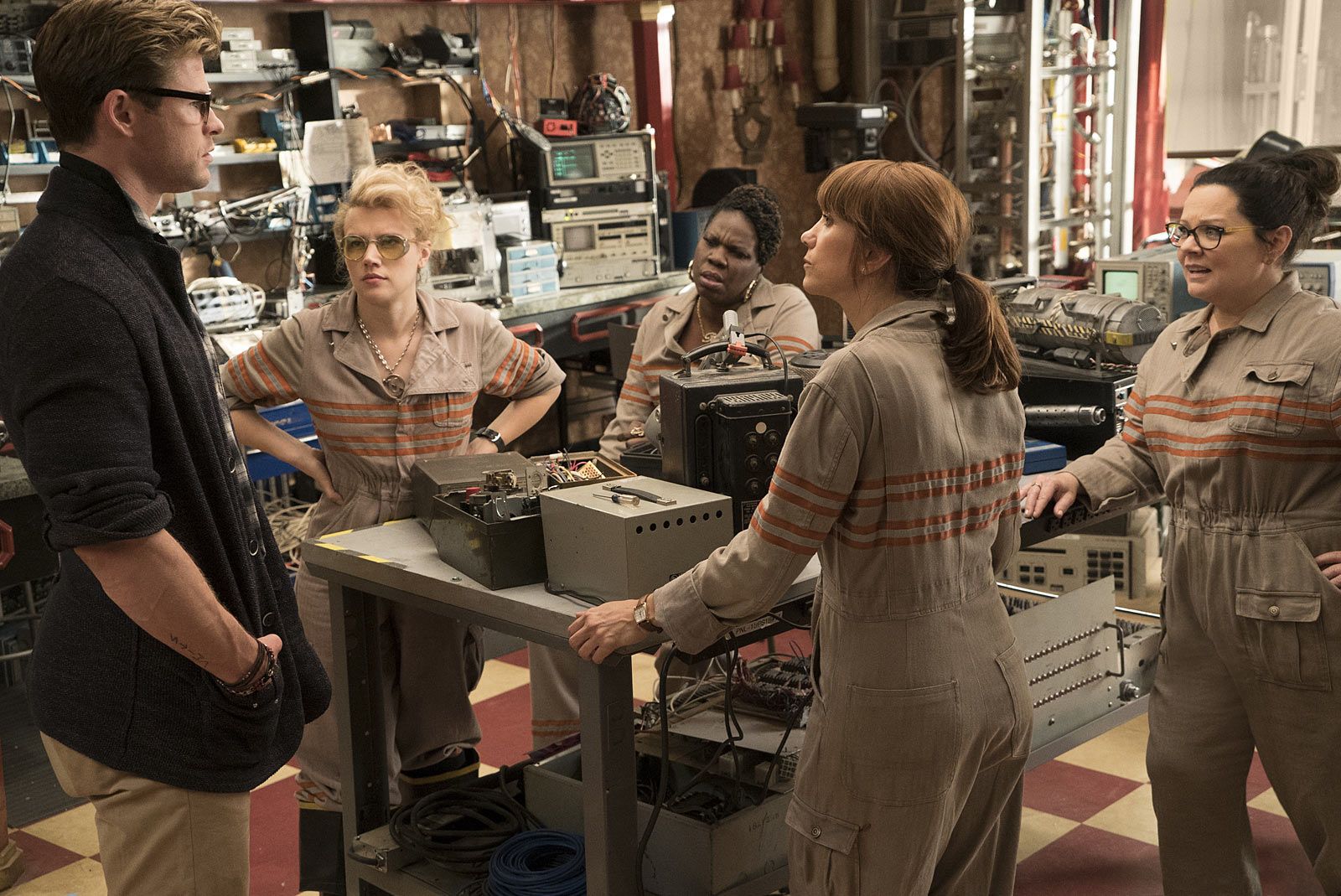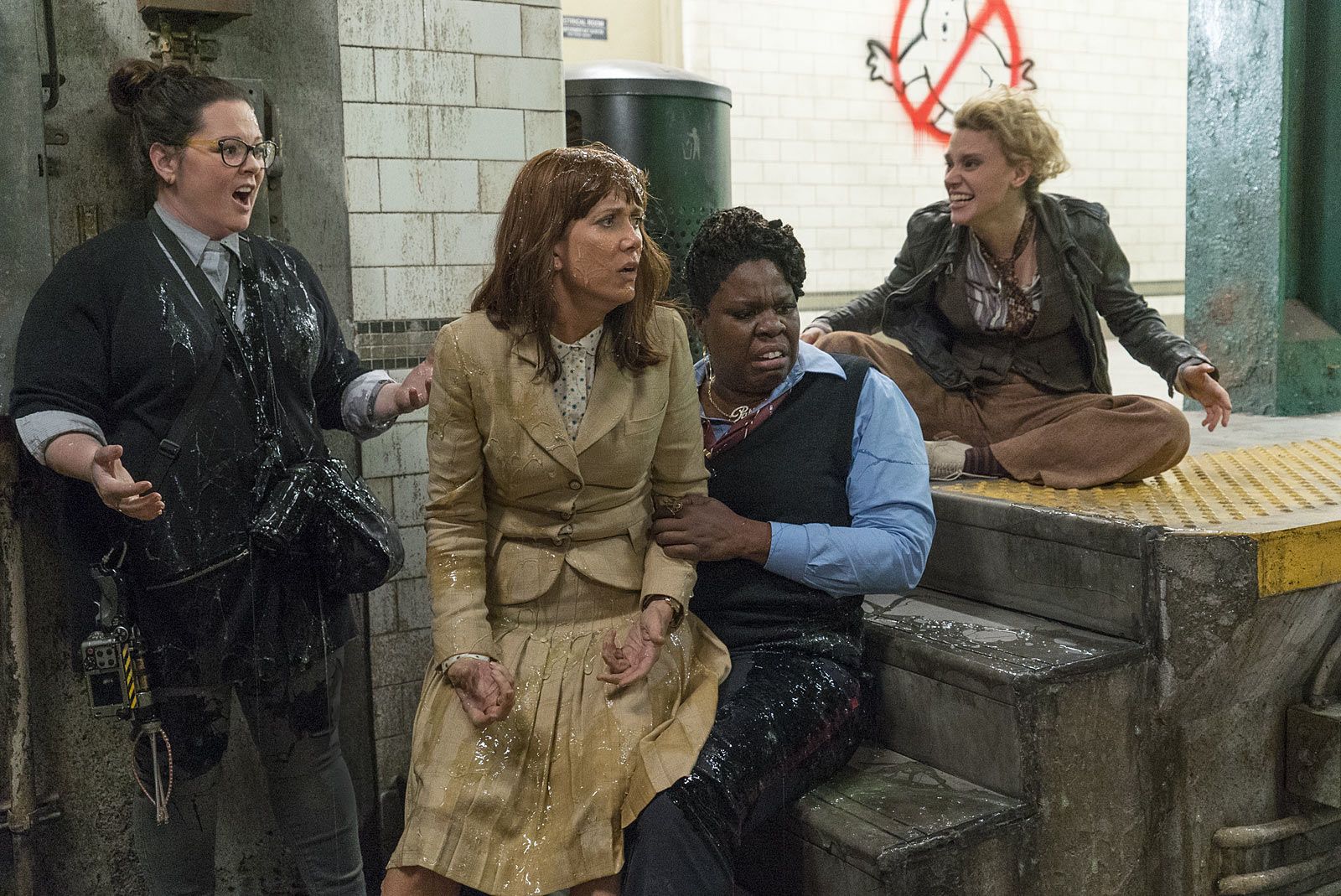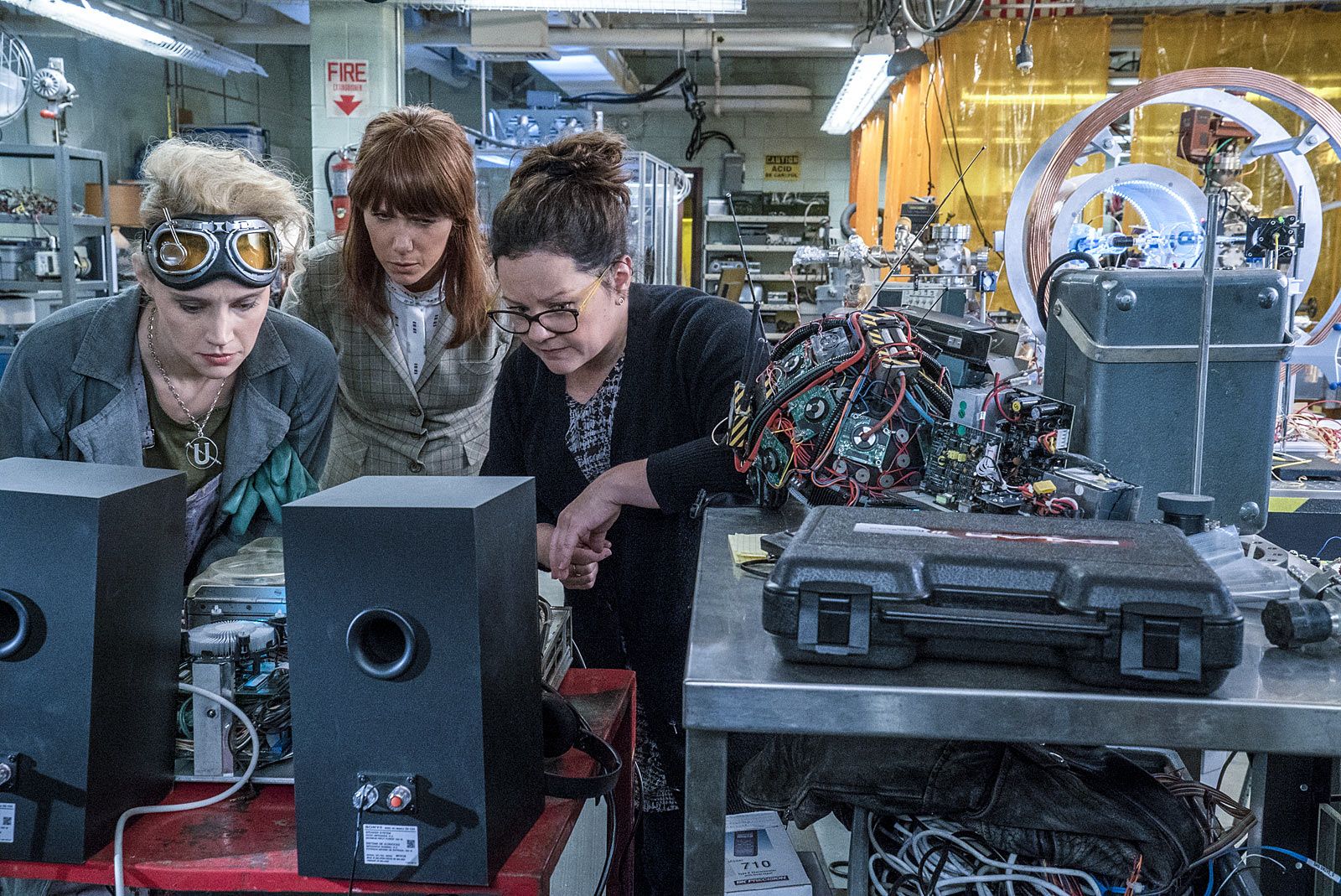Last weekend I did something I rarely do: I saw a movie in the theater multiple times because I was so obsessed with it. That movie is "Ghostbusters" and just two days after my second viewing, I'm ready to go again. Obviously I wasn't alone in my fandom. The film raked in $46 million dollars in North America in its first weekend, making it the second best-earning film of the weekend, and the second biggest non-animated, non-superhero opening of the year. In both of my screenings, the theaters were sold out with fans who cheered, clapped and shouted for joy as Kristen Wiig, Leslie Jones, Melissa McCarthy and Kate McKinnon busted their way to glory. I saw scores of young girls in absolute rapture watching a diverse group of women saving the day. In fact, one girl of eight or nine whispered "whoa" with total reverence every time McKinnon showed up. (I related to this girl on a spiritual level.)
I saw the movie opening day, and within the first 30 minutes I was hypnotized. Intelligent, hilarious women who joked about queefs and poop like me and my girlfriends? Two fat women whose bodies are not a punchline or a plot line? A "nice guy" villain with a vendetta against powerful women, hellbent on taking his whiny aggressions out on the entire community? These were things that I could relate to, and women that the young girls sitting around me could look up to! Confident women pursuing their interests, in love with science, standing up for each other when men in positions of power tried to shut them down, all while having a great time with their friends. Before "Ghostbusters," I had no idea that a silly, lighthearted summer movie could have such a powerful impact, but by the end of my first viewing I was sobbing the happiest of tears.
RELATED: "Ghostbusters" Sequel "Will Happen" Says Sony Exec
Not everyone was as infatuated with the reboot as I was (as I discovered the next day on social media), but "Ghostbusters" hit me right in the heart. As a 35-year-old woman, I've spent most of my pop-culture filled life seeking characters I can connect with. The truth is, there just aren't enough types of women in leading roles, and certainly not enough ensemble female team action movies.
In Hollywood, most women are only allowed to be heroes at the center of their own stories if they meet a minimum threshold of male gaze appeal. When women are depicted as being sexy first and foremost, it sends a message that our appearances are the most valuable thing we have to offer -- even if the characters are otherwise interesting and capable. When they fight, they do it in crop tops, low-cut leotards, and thigh high boots, contorting their bodies into sexual positions rarely seen in combat. When they work, they wear fitted suits, tight skirts and push-up bras, most of which would never be seen in the office. This reinforces and reflects the misogyny that women are victims of in everyday life, as seen in street harassment, non-consensual photos, and dress codes written to punish bodies for being female. It treats our appearances as currency for social success, while punishing us for having confidence. But not in "Ghostbusters."
All of the leads are attractive, but their appearances are a compliment to their stories instead of the paramount characteristic. Each is styled in a way that makes perfect sense for her job and sense of self. Wiig as Erin, the Ivy League academic professor, wears tailored, conservative suits appropriate for a collegiate setting. Jones as Patty wears her uniform or stylish street wear, offering the practical suggestion of coveralls for the team after it's clear they're going to keep getting slimed. McCarthy's Abby shows up in hipster button ups, cardigans and Chuck Taylors, perfectly blending her job as a scientist with her own aesthetic -- and luckily, she isn't hidden in unflattering tents to hide her fatness, but in clothes that celebrate her shape and natural beauty.
And McKinnon's Jillian. I could write an entire editorial about her pattern mixing, her cuffed overalls, and her burgundy smoking robe. She has an undeniably sexual swagger, benignly flirting with everything from her friends to her weapons. In her climactic fight sequence, she takes the poses of an action hero without a smidgen of cleavage or an inch of midriff in sight. The styling of the cast sends a strong message: you, women sitting in the audience, are not beholden to standards of conventional beauty. Put on your dirtiest coveralls, your gold hoops, your tiny bow ties, and vaporize whatever stands in your path.
Wigg, Jones, McCarthy and McKinnon accomplish things few all-female casts have before: they are friends; they are not in competition; their story is not about the quest to find, marry, or procreate with a partner; and they respect one another professionally. This shouldn't be groundbreaking, but it is. Not only do they model real-life friendships, but they treat other women in their path with the same sort of camaraderie. When they first encounter the ghost of Gertrude Aldridge, they are in awe of her. They admire how beautiful her materialization is, assuming she is a peaceful entity. Even after she attacks them with a horrific geyser of ectoplasm, they revel in her natural behavior without attempting to strike back. The same goes for Cecily Strong, they Mayor's assistant. Strong is an attractive, assertive businesswoman, and in a lesser movie she would be a contentious obstacle for the leads. But instead, the Ghostbusters work with her -- McCarthy acknowledges her correct point of view during their initial meeting and their interactions remain friendly throughout the movie, demonstrating that women on opposite sides of a professional arrangement can find common ground.
RELATED: REVIEW: Sorry, Haters, But "Ghostbusters" Is Great
Still buzzing with excitement after my second viewing, I posted a status on Facebook extolling the film's virtues, proclaiming my joy, and encouraging my friends to go and see it. Over 100 of my friends agreed with me, and shared my status with their friends. And within an hour I was getting random, unsolicited comments from these so-called friends-of-friends, calling me disgusting names, insulting my intelligence and attacking me for daring to like a female-centric action movie that, somehow, lessened their abilities to enjoy the original film. While my experience in no way compares to the revolting barrage of racist bullying Jones was the victim of on Twitter, it was still completely out of line -- but sadly not a surprise.
The misogynist, gatekeeping reactions from so-called fans of the 1984 "Ghostbusters"have been washing over the Internet in ugly waves since the reboot was announced. So, let's take a look at the original film, examine the great legacy it has created and what it holds for people like me.
When I heard about the reboot I admit to being skeptical. I don't tend to like many reboots, though I don't see any harm in their being made. I do, however, see harm in the criticisms from mostly male fans, saying things like "this movie rapes my childhood." That makes my skin crawl for many reasons: the entitlement of assumed ownership; the language diminishing the actual, literal horrors of assault; and the incorrect assumption that a reboot could possibly impact their life-long enjoyment of the original film. The prevalence of that reaction was actually what convinced me to see the movie. Why was this new female cast so threatening to this mostly male portion of the fanbase? How could they thoroughly hate a movie they hadn't even seen? And why was it so controversial that women were assuming central roles, presumably as a corrective to some of the gender inequality rampant in the original film?
Now don't get me wrong here: the original "Ghostbusters" is one of my top 20 favorite films of all-time, but nobody can claim that it isn't sexist as hell. Unpacking the misogyny of the original film isn't a task I enjoyed -- I love that world and the ribald humor that typifies it. The movie's importance cannot be denied, but that doesn't mean it shouldn't also be examined, especially if a major argument against the reboot is how divergent it is.
RELATED: That Chris Pratt-Channing Tatum "Ghostbusters" Movie "Was Never Real"
There are roughly ten women in the 1984 "Ghostbusters," most of whom hold tiny parts. The first woman we see is a librarian who spends her screen time stalked by an unseen presence, terrified out of her mind. Then we meet two lady ghosts: the peaceful librarian who just wants to comb through the stacks but transforms into a shrieking denizen of hell after being pestered by the relentless Ghostbusters, and the beautiful vision in Ray's dream, whose only purpose is to give him a blowjob from beyond. There's Dana Barrett (Sigourney Weaver), a mature and sensible woman who seeks out the Ghostbusters only to be continuously sexually harassed by Dr. Venkman, even after rejecting his advances. And then she ends up possessed by a demon, thoroughly removing the last of her agency. Janine Melnitz (Annie Potts), the team's secretary, is condescended, suffers biting comments about her appearance, and is treated like a nuisance. The only woman of color in the movie is a hotel maid, minding her own business when her supply cart is shot to crap by the boys, who offer monotone apologies and not much else. Finally, we have Dr. Venkman's student, whom he lies to and manipulates for his own amusement.
Every woman in the movie is either harassed, sexually harassed in the workplace, or victimized. I love the movie and I turn it on to laugh with it, but it's not exactly a place where I feel represented as a person. Isn't it time to make more room for an entire gender to see themselves accurately portrayed in that iconic, exciting world? Shouldn't a new generation be able to make cardboard proton packs and discover how good busting makes them feel, without being relegated to sexy ghosts and obnoxious secretaries?
That said, I'm never going to not love the original "Ghostbusters." I'm never not going to think that it doesn't have some of the most quotable dialogue ever committed to film, and I trust that generations of fans will continue to fall in love with it along with me, hopefully without turning into the sort of monstrous garbage-fans who attack others. However, I'm also beyond excited at this new vision of Ivan Reitman, Dan Aykroyd, and Harold Ramis' world from Paul Feig and co-writer Katie Dippold.
I'm grateful to Feig and the cast for showing me what it can feel like to be represented and respected in an action movie, how it can feel to be seen. And when I think about those young girls who were in the audience with me? I know that bustin' can now make them feel good, too.
"Ghostbusters" is in theaters now.

